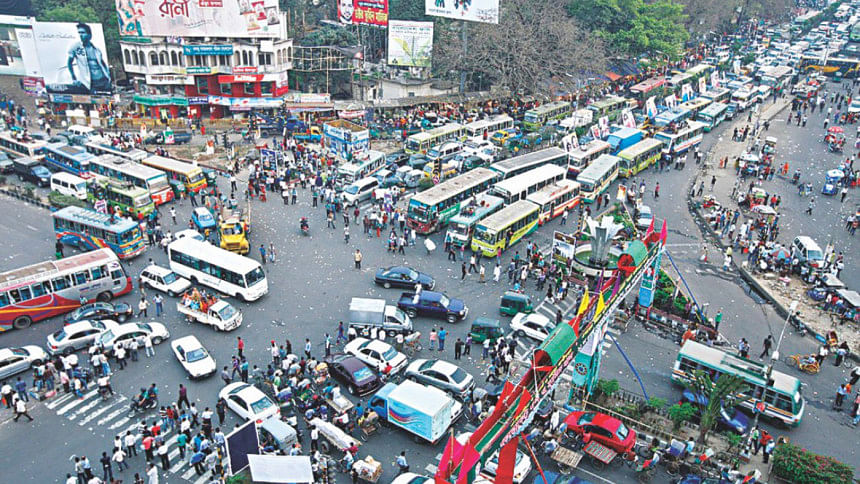Road deaths and injuries: The role of tort law

Bangladesh is hardly any stranger to road deaths and injuries but this past month has been particularly poignant since certain road injuries and subsequent deaths in Dhaka have garnered nationwide attention due to their tragic and gruesome nature. On April 3, Rajib Hossain, a university student, had his right hand chopped off after it got stuck between two speeding buses. He later died at Dhaka Medical College Hospital. On April 11, Runi Akter, a university student, was hasting towards a road divider when a speedy bus ran over her, and crushed her legs against the pavement. She is still undergoing treatment at a Kalyanpur hospital. These gruesome incidents are but the latest instances of our already dire road fatality problem. A recent study by the Accident Research Institute at BUET found that 40,000 people have been killed and 60,000 crippled as a result of road crashes in the last five years alone.
The severity of this problem must beg the question as to how the law should respond to road deaths and injuries. While almost all cases have seen the police chasing down the bus driver and lodging a complaint against him, we must come to understand that criminal law offers little respite to victims of road fatalities. When someone loses a part of their body as vital as their hands or legs, imprisoning the offender does nothing to address the innumerable pecuniary and non-pecuniary losses that are bound to flow out of this bodily injury. Take for instance, the case of Runi Akter, who was not only in the final stages of her MBA course but was also working part time at Rangs Properties to help her family make ends meet. Upon graduation, she was hoping to secure a full time, better paid job in the commercial sector to support her family to an even greater extent. Criminal law is unable to address the host of losses now faced by Rumi, as imprisoning the reckless driver will not make Rumi's life any better. It will not address the immense financial costs of her ongoing and future treatment or the immense loss of potential earnings that she could have made as an able bodied MBA graduate.
Tort law on the other hand, which deals with compensating victims, is very much apt in dealing with these cases as it tries to redress the victim in monetary terms insofar as possible. Furthermore tort law allows the court to impose liability on third parties who should be held accountable (but escape criminal liability) such as bus owners and operators who employ unqualified drivers to run unfit buses in the first place and directly incentivise rash driving by paying these drivers by the number of trips they can make, rather than on a weekly or monthly basis and they also have deep enough pockets to pay the necessary compensation. The Bangladesh Beverage Case and Catherine Masud Case are two significant precedents set by the Supreme Court on road deaths and injuries whereby employers were vicariously held liable for the reckless driving of their employees and ordered to pay BDT 1.7 crores and 4.6 crores in damages to the victims respectively.
Runi's university colleagues have already held a demonstration demanding justice for their friend, including demands for compensation. This is significant because it shows how we are slowly moving away from our obsession with criminal law as the exclusive medium of implementing justice. Additionally, State Minister for Labour and Employment Mr. Mujibul Haque said the government has decided to provide BDT 2 lakh as compensation to the family members of Rozina Akhter, another victim of road death and most recently the High Court has asked the two bus companies to pay BDT 1 crore to the family members of Rajib Hossain. While these are welcome steps by the government and judiciary, the amounts are inconsistent and no mention was made of Rumi or any of the other victims. Furthermore, the applicability of the precedent set by Rajib's case to private bus companies/parties is questionable as it was filed under article 102 of the Constitution which generally applies to public authority bodies. What we need right now is a systematic compensation scheme incorporating established tort law principles, which is accessible to all victims of road deaths and injuries, not ad-hoc, erratic sums of compensation offered to selected victims whose death or injury garners a requisite degree of attention.
Taqbir Huda
Legal Researcher, Bangladesh Institute of Law and International Affairs (BILIA)

 For all latest news, follow The Daily Star's Google News channel.
For all latest news, follow The Daily Star's Google News channel. 



Comments